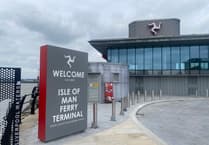Minister without Portfolio Tim Crookall says there is now momentum within government to make money saving changes.
Earlier this week, in answer to a written Tynwald question, Chief Minister Alfred Cannan outlined how the government is set to make an estimated £7m in savings as part of its Efficiencies Programme.
Mr Cannan announced in October last year that a plan was being created to save at least £10m across government in this current financial year - and at least £50m of cashable savings over the next five years.
The programme aims to cover five key areas: digital transformation, improvements in contracts and procurement, release of assets, recruitment controls and redesign of services.
Now Mr Crookall, who has responsibility for the Efficiencies and Change Programme, believes significant progress is being made.
He said: ‘With the Efficiencies and Change Programme firmly up and running, this quarter marks the beginning of a serious, long-term effort to reform the way government works.
‘The report shows that, as at the end of June, over £7 million in potential savings have already been identified. Since then, the figures are tracking higher, and further updates will be shared at the upcoming Government Conference.
‘While that figure is an early estimate which we expect to evolve, and the benefits won’t all be immediate, all Departments are now engaged, programme structures are in place and momentum and direction is clear.
‘Not only to accelerate new reforms, but to bring greater focus and visibility to the important work already happening across the public sector in support of this goal.’
Mr Crookall admits the process will not always be plain sailing but the long-term benefits make it worthwhile.
‘Change is never easy,’ he said. ‘It takes investment and a willingness to do things differently. But if we want public services that are truly fit for the future, that are simpler, faster and more cost-effective, then we have to deliver more than short-term fixes.
‘People rightly expect high-quality services that are easy to use and built around their needs, without relying on continual growth in public sector headcount or the overall salary bill.
‘This Programme is about meeting that expectation, and doing it in a way that’s built to last.’
In his breakdown of savings identified, Mr Cannan revealed the biggest saving - £2,805,060 – will be an overhaul of contracts, including the development of a centralised contract register and a renewal of the telecoms contract within government.
A further £2,714,505 is set to be saved on an overhaul of the management of Government estates with other savings identified with the likes of introducing digital payslips and a focus on recruitment control.
Mr Cannan said: ‘Since the mobilisation of the Efficiencies Programme, work has focused on accelerating existing initiatives across the public sector and identifying opportunities for new reforms.
‘These benefits are estimated and will be realised progressively over time as projects are completed.’
Just under £2.3m will have been spent over the next 14 months on the government’s efficiency programme.
.jpeg?trim=0,0,0,0&width=752&height=501&crop=752:501)


.jpeg?width=209&height=140&crop=209:145,smart&quality=75)
